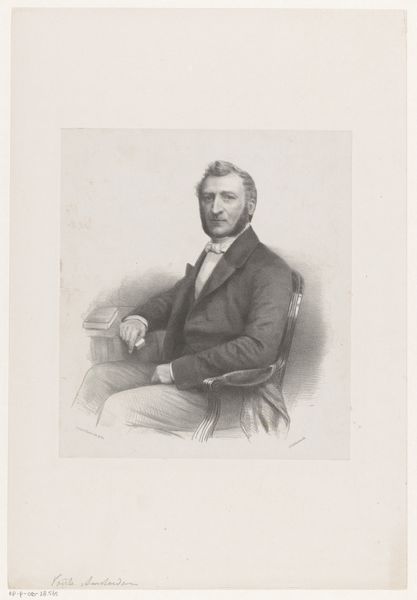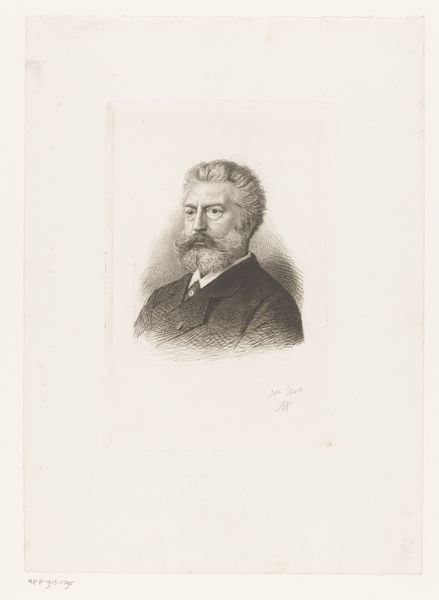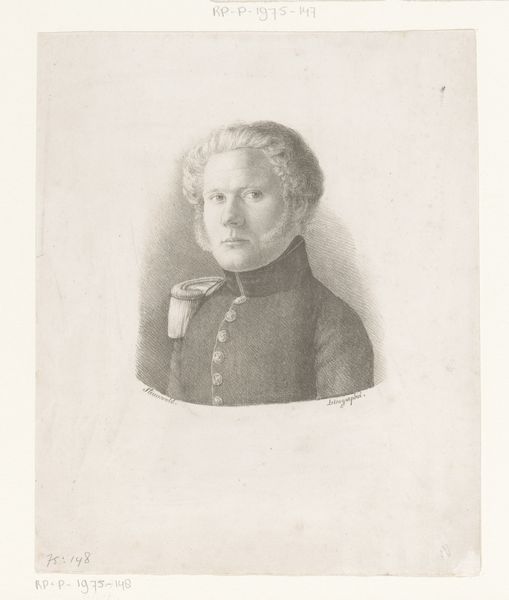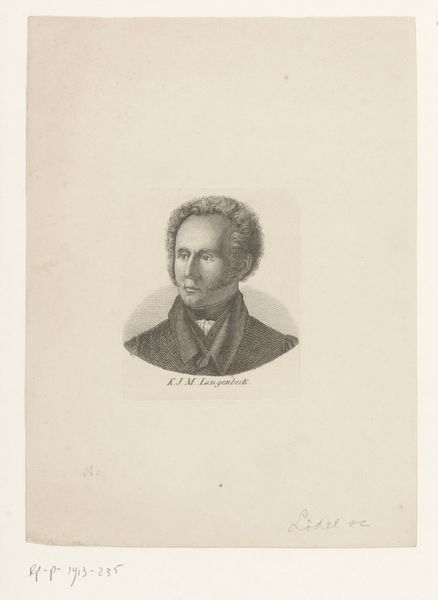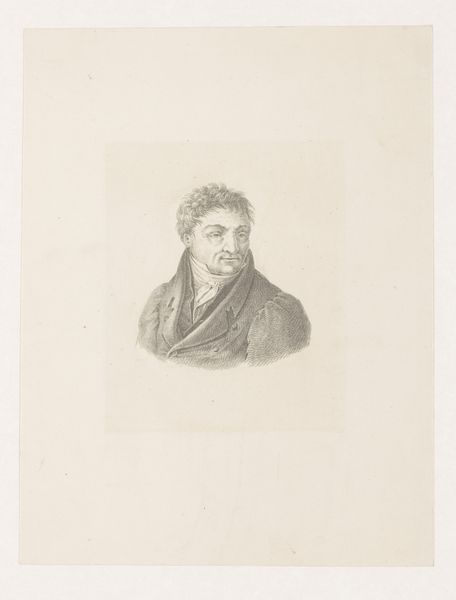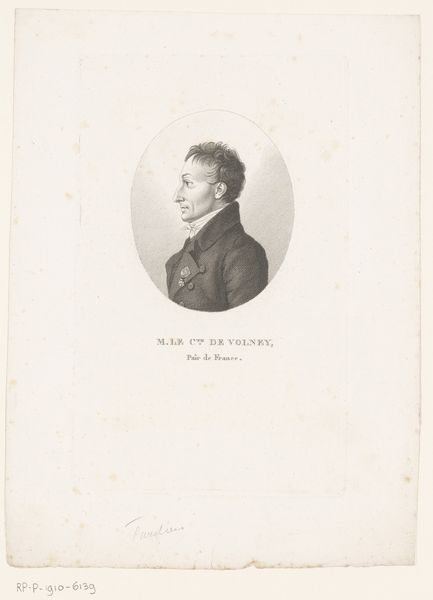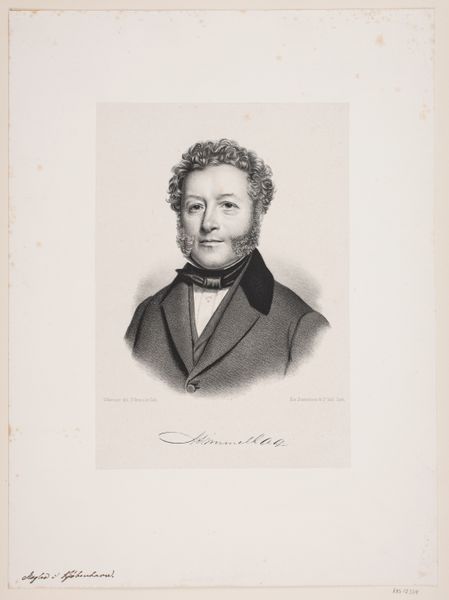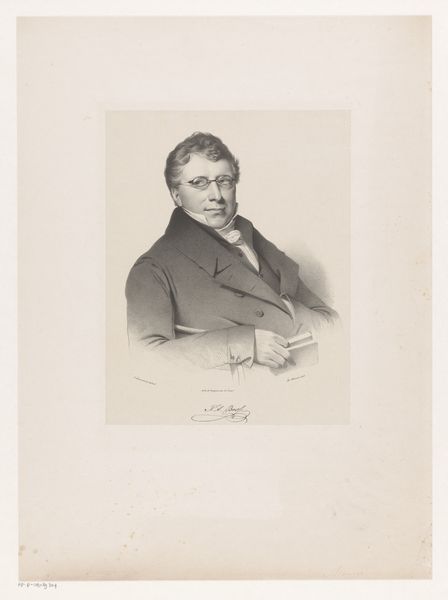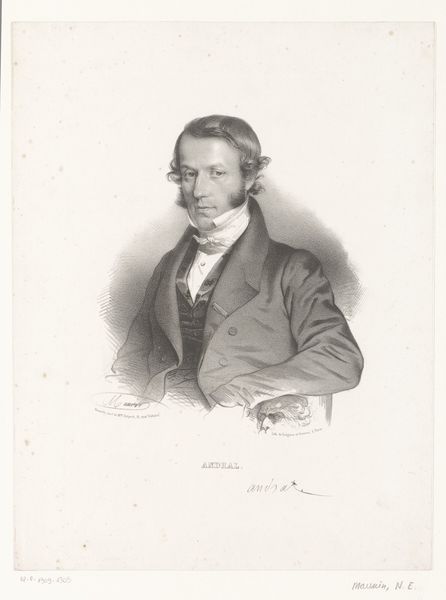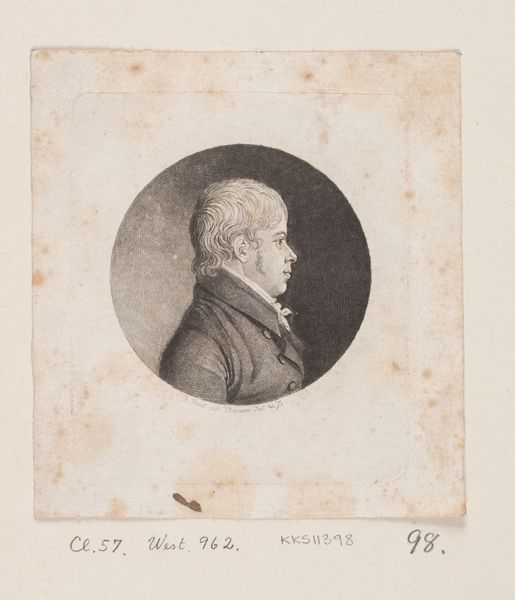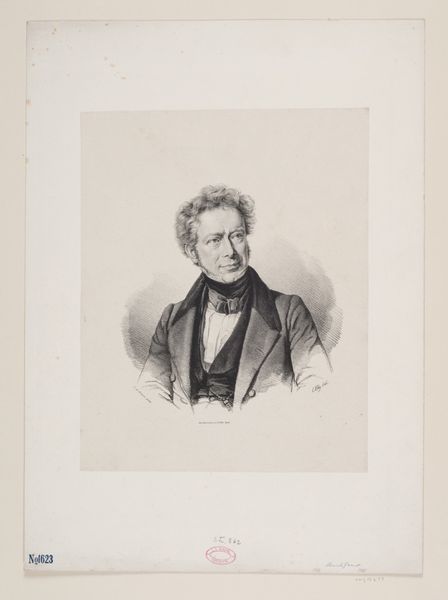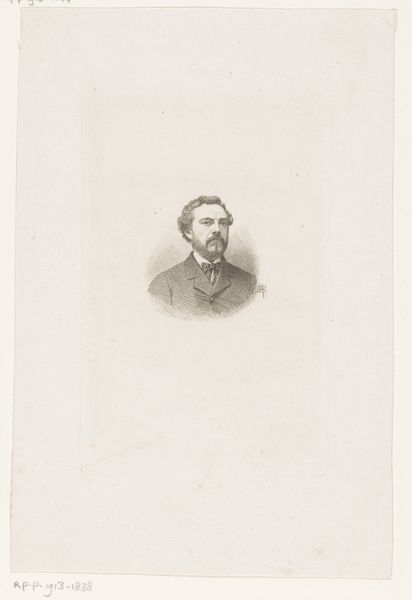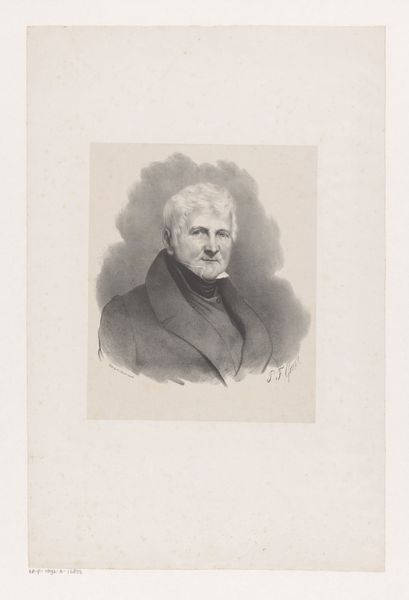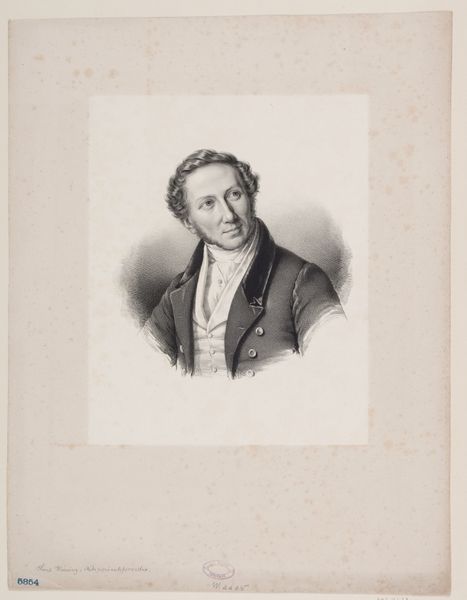
drawing, pencil
#
portrait
#
drawing
#
neoclacissism
#
charcoal drawing
#
pencil drawing
#
pencil
#
portrait drawing
#
academic-art
Dimensions: height 403 mm, width 319 mm
Copyright: Rijks Museum: Open Domain
Editor: This is "Portret van Cornelis Pieter Jacob Elout," a pencil and charcoal drawing from 1838, now housed in the Rijksmuseum. I find the level of detail the artist, Augustin Luc Demoussy, achieved with just pencil and charcoal fascinating. How can the selection of materials alone communicate the status of the portrayed subject? Curator: Absolutely. Notice the conscious deployment of specific grades of graphite and charcoal. This wasn’t just about likeness; it was about visually constructing Elout's persona. Look at the precise linework used to render his suit. Think about the industrial revolution—how readily available were these materials to someone like Demoussy and the impact of standardized materials in democratizing art creation? Editor: That’s interesting. So, it's not just about Demoussy's artistic skill, but the larger system that allowed him to obtain these materials. Did the availability of mass-produced drawing supplies alter the value we place on handmade artistic objects? Curator: Precisely! Consider the context. The meticulous detailing almost elevates Elout to a new kind of industrial bourgeois ideal. What kind of labor and industrial progress is this personifying and participating in? It becomes crucial to ask about who had access to what materials, and at what cost to the labour force creating those materials. Editor: I never thought about it that way. The materials themselves tell a story beyond the subject of the portrait. Thank you for shedding light on this! Curator: Indeed. Examining the material conditions of art production expands our understanding and offers a grounded understanding of aesthetic creation.
Comments
No comments
Be the first to comment and join the conversation on the ultimate creative platform.
